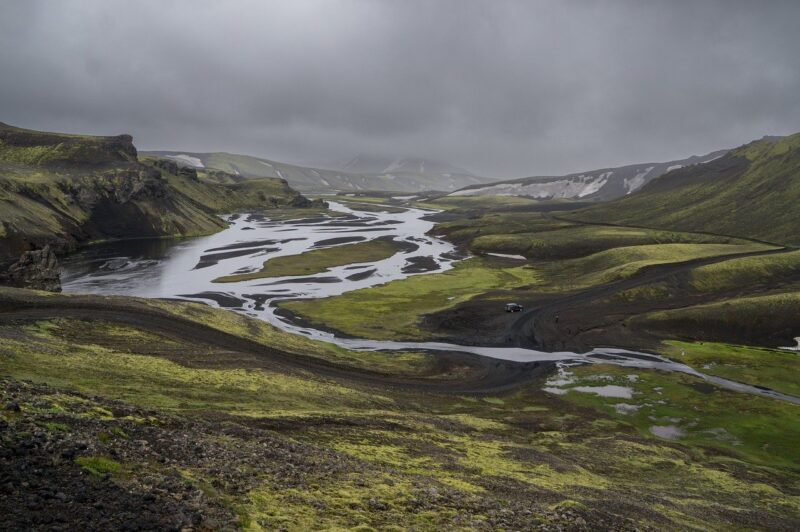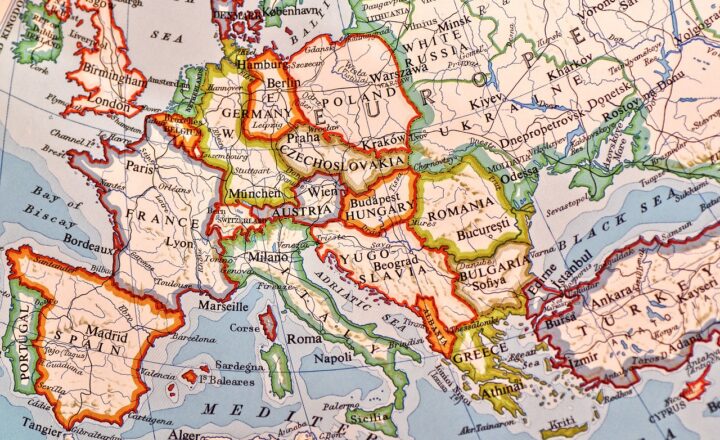
Rivers have played a crucial role in shaping national borders and geopolitical boundaries throughout history. These natural waterways not only serve as physical barriers, but they also provide resources, facilitate trade, and influence human settlement patterns. The significance of rivers extends beyond mere geography; they are intertwined with the culture, economy, and politics of nations.
1. Historical Context: Rivers as Natural Dividers
Historically, rivers have often been chosen as national borders due to their distinct and often impassable nature. States and territories naturally align themselves along river banks, using the waterway as a demarcation point:
- The Rio Grande: Serving as a border between the United States and Mexico, this river has shaped the political and cultural landscapes of both nations since its designation as a boundary in the 1848 Treaty of Guadalupe Hidalgo.
- The Danube River: Flowing through many Balkan states, the Danube has historically formed boundaries between empires and nations, showcasing its importance in European geopolitics.
- The Rhine River: Acting as a border between France and Germany, the Rhine has been pivotal in determining territorial claims, especially during conflicts such as the Franco-Prussian War.
Rivers can be more than just geographical boundaries; they serve as conduits for cultural exchange and societal growth, making their geopolitical position even more significant.
2. The Impact of Rivers on Political Relationships
Rivers have influenced political relationships between neighboring countries, often becoming points of contention or cooperation. This duality of existence reflects how rivers are critical to both natural resource distribution and territorial claims:
- Water Rights Disputes: Countries sharing river basins often engage in negotiations over water allocation. For instance, the Nile River has been a source of tension between Egypt and Ethiopia over dam constructions and water access.
- Cooperative Agreements: On the flip side, rivers can serve as a basis for collaborative agreements. The Mekong River Commission is an example of countries working together to manage shared water resources effectively.
- Conflict Hotspots: Throughout history, rivers like the Zambezi have been battlefronts, highlighting how these natural features can lead to territorial conflicts over resource control, transportation routes, and strategic advantages.
The interaction between rivers and national sovereignty reflects the evolving nature of political landscapes, where the significance of water can ebb and flow like the rivers themselves.
3. The Role of Rivers in Economic Development
Rivers are vital arteries for trade and commerce, facilitating the movement of goods and people, which impacts national economies and political boundaries. This economic dimension further cements the significance of rivers in geopolitical contexts:
- Trade Routes: Rivers such as the Mississippi and Amazon serve as prime transportation corridors that connect interior regions to ports and markets. The effective utilization of river systems can promote economic growth and foster closer ties between nations.
- Resource Distribution: Rivers are also sources of freshwater and natural resources, which can determine the wealth of nations. Access to these resources greatly influences national policies and international relations.
- Developmental Disparities: Countries that harness their river systems for hydropower and irrigation may gain a competitive edge, leading to disparities in economic development along river borders.
In many cases, the geographic and economic significance of rivers contributes to the strengthening or weakening of national boundaries by enhancing or limiting access to essential resources.
4. Environmental Considerations and Sovereignty
The ecological health of rivers is increasingly recognized as vital not only for sustaining life but also for maintaining stable geopolitical relations. Environmental degradation can significantly affect border dynamics:
- Pollution and Water Quality Issues: Shared rivers often face pollution challenges resulting from industrial waste and agricultural runoff. Nations must cooperate to address these issues, or face escalating conflicts over water quality and safety for their populations.
- Climate Change Impacts: Rising sea levels and changing precipitation patterns threaten river systems globally, leading to water scarcity and disputes. Countries must prioritize sustainable management to avoid exacerbating tensions and conflicts arising from resource scarcity.
- Ecosystem Preservation and Sovereignty: Nations that prioritize the ecological health of shared rivers positively influence geopolitics. Collaboration in joint conservation efforts can serve as a tool for diplomacy and conflict reduction.
With environmental sustainability becoming a critical issue, countries sharing river systems must navigate the complexities of preserving ecological integrity alongside their geopolitical interests.
5. Case Studies: Rivers in Contemporary Geopolitics
Several contemporary rivers exemplify the dynamic roles they play in shaping borders and geopolitical interactions:
- The Ganges River: As one of the holiest rivers in India, the Ganges not only has cultural significance but also political implications, defining boundaries between India and Bangladesh, and raising questions regarding water rights and pollution control.
- The Jordan River: Serving as part of the border between Israel and Jordan, its waters are at the center of Middle Eastern geopolitics, affecting peace talks and resource allocations.
- The Tigris and Euphrates Rivers: These rivers are pivotal in the geopolitics of Iraq, Syria, and Turkey, as the quest for water security is a significant factor in regional tensions, with their right to divert or access this water being continuously disputed.
These examples reflect the complexity and often contentious nature of rivers as dynamic geopolitical entities that can unite or divide neighboring nations.
Conclusion
Rivers are much more than mere bodies of water; they are vital components of our geopolitical landscape. Their natural flow shapes borders, influences political relationships, and drives economic development while raising critical environmental challenges. As nations grapple with the significance of rivers in their geopolitical narratives, it becomes evident that these waterways will continue to shape global interactions and national identities for years to come.
Whether providing resources or fostering conflict, the multi-faceted role of rivers will remain central in the future as humanity seeks sustainable solutions in a world increasingly defined by the geography of water.







